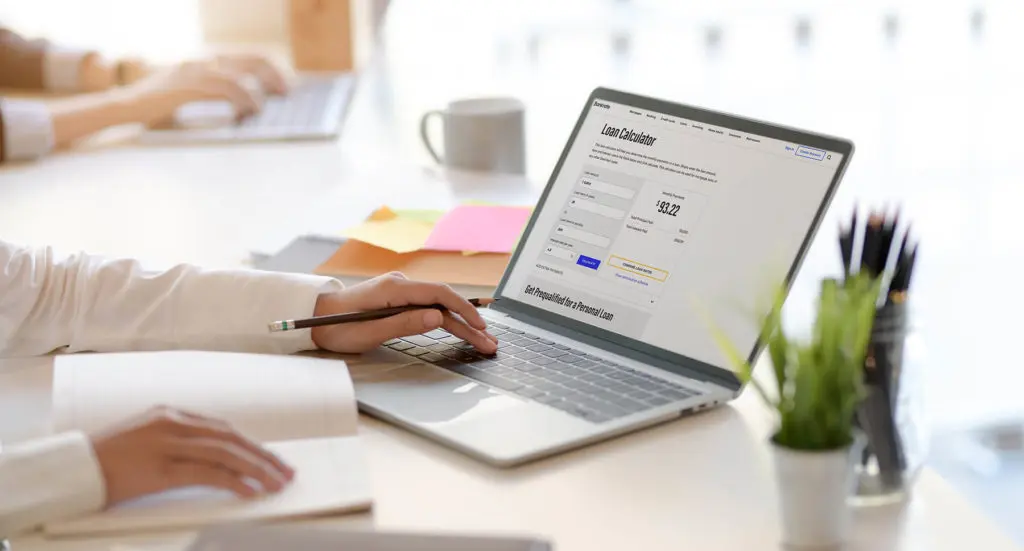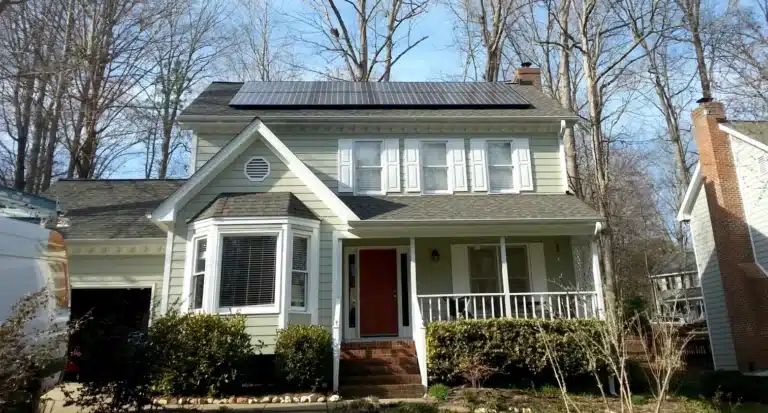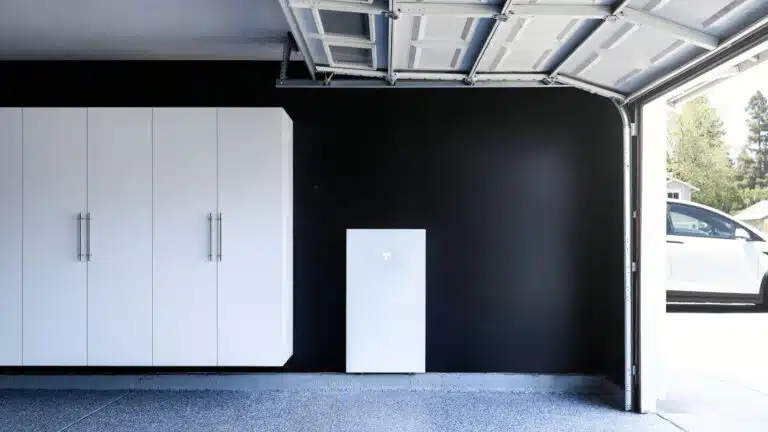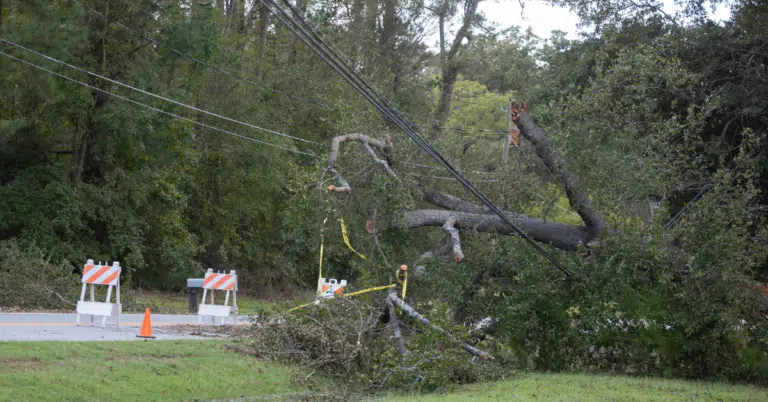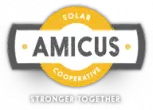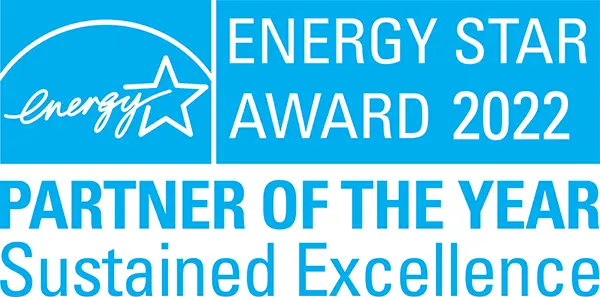- Will Etheridge
- August 7, 2020
- 10 Minute Read
As with any major purchase, there are a lot of financing options available when it comes to buying a home solar system. Most homeowners (84%) took out a mortgage to purchase their home, so “financing” is not a dirty word. While some of our customers prefer to pay in cash, many others choose financing instead. In this article, we’ll be talking about “Zero Down” financing, defining what that means, and looking at associated costs to help you decide if a Zero Down program might be a good option for you.
What is a Zero Down Solar Loan Program?
A Zero Down ($0 Down) solar loan program is a solar system financing option where the homeowner pays $0 upfront for the cost of their solar system. Instead, the cost of the system is spread out over monthly payment terms with interest factored in. This is a similar model to some home mortgages that allow you to put down 0%, but charge you on Private Mortgage Insurance (PMI) in the fine print, increasing the total purchase price.
The 25-year loan we offer features a “choice” payment at month 12 designed around the 30% Federal Tax Credit for solar which is essentially an opportunity to re-amortize the loan. If you pay the full amount of the tax credit you receive for your solar system by the 12th month of the loan, your monthly payment will remain the same. If you pay more than 30% by the choice payment date, your monthly payment goes down; pay less than 30%, your monthly payment goes up. Your designer will discuss with you the best option to fit your goals.

How Does a Zero Down Solar Loan Stack Up?
The goal of our zero down solar program is to make your monthly payments for your loan less than or equal to your solar savings so you can be cash flow positive from day one. Being able to hit this target depends on a variety of factors — your system’s energy production, the cost of the system, and your utility rate to name a few. You can read more about all the factors that go into a successful solar solution in our Home Solar 101 Guide.
The chart below shows how the cash flows for our Zero Down loan program as compared to paying for your solar system in cash, while also comparing the cost of continuing to pay your utility for energy.
Zero Down Financing vs Cash
No High Upfront Costs
The biggest and perhaps most obvious benefit is that zero down solar is more affordable and accessible because it eliminates the high initial cost of solar you pay if you take the cash route.
More Expensive Overall
You end up paying more for a financed solar system both starting out and over the life of the loan. Initially, the price of the system itself increases to account for the increased cost to set up the loan of the amount financed depending on the program. Then, over the life of the loan, you pay interest which further increases the cost.
Here’s a quick breakdown of solar pricing for an average size solar system in North Carolina with Zero Down financing.
| Value | Notes | |
|---|---|---|
| Size | 8.5kW | |
| # Panels | 26 | |
| Turnkey Price with Financing | $29,000 | The increased cost covers financing fees. We don't make any margin on these fees, we simply append them to the system price. |
| Increase in Price Above Cash | $5,000 | |
| Avg Monthly Payment | $116 | |
| Avg Monthly Savings (Over Lifetime of System) | $129 | Assumes 3% Energy Escalation Rate |
Calculate Your Solar Savings
See solar on your home! Our solar calculator uses your home address, the details you provide, and LIDAR satellite technology (with a dash of AI) to give you a ballpark estimate of how much you could save by going solar.
Differences Between Solar Loan Rates
When comparing solar panel quotes, one of the first things you’ll notice is the difference in financing rates between solar companies. While it may seem like some solar installers are offering a much better rate than others, it’s important to take a step back and get all the facts.
After working in the North Carolina solar industry for nearly 20 years, we are confident in saying no solar company has a real competitive advantage when it comes to solar financing. So why do some solar companies appear to have better financing terms? Much like a home mortgage rate, a solar loan rate can also be reduced by paying more upfront, also known as “buying down the rate”. The biggest difference between your home mortgage and a solar loan rate is that the solar company is the one making the decision on how much to buy down the rate and what costs to pass on to the homeowner.
Unfortunately a lot of big national solar players have chosen to buy down the rate to the extreme while doing their best to conceal the added cost to their clients by focusing on monthly payments rather than a total turn-key cost. We’ve been seeing a lot of competitive quotes with this model, masking the financial impact of the added cost of the rate buydown with utility incentives and tax credits. We anticipate that once the tax credits step down, the financials on those quotes don’t work out quite as well and those companies will likely exit the market or move to other markets with solar incentives.
Southern Energy Management is constantly evaluating what financing options we’re offering to our clients to make sure we’re providing the best value. We don’t make money from financing or get a kickback from banking partners, and we’re not incentivizing anyone on our team to put you in a certain payment plan. Our goal is to give you the best terms, and a majority of our customers end up paying off their solar loan within 5-7 years. It can be challenging to compare solar quotes “apples to apples” with so many variables involved, but at the least make sure you know what you’re paying for (system size) and how much you’re paying (in full turn-key price, not just a monthly payment).
Common Zero Down Solar FAQS
Here are some common questions and general answers about solar financing. The below information reflects our experience with various solar lending partners and are broad generalizations. Each vendor will have specific terms and conditions that vary. We currently work with Mosaic, but Dividend, EnerBank, and GreenSky are several other examples (we’ve worked with a few of these too!). You can also choose to work with a bank of your choice to procure a personal loan for your solar system.
Requirements vary by lender, but our financing partners typically require that the customer must own the home, be a U.S. citizen or permanent resident, and must complete the credit application and loan agreement.
During the pre-qualification process a soft credit inquiry will be conducted which will not affect your credit score. There are a number of terms and requirements that our lending partner reviews during the pre-qualification assessment, your credit score being just one of them. You may come across some solar installers with a defined credit score threshold, however, we don’t have a fixed criteria. Most lenders will want to see a minimum of 660 though. A “hard” credit check is only pulled once you sign an installation agreement and after any other contingencies are met (HOA being the main one).
In general, most solar financing will cover solar equipment and system components, labor, general & administrative costs, and associated electrical work.
The short answer is yes. How much your utility bill amounts to will depend on how much of your electricity consumption is offset by the power your solar system generates. Unfortunately, there’s also no getting around those pesky administration and processing fees.
No. With a lease, you never actually own the system and you are making monthly payments to “rent” the system from the installer. With the Zero Down option you are purchasing the system and financing it over time.
This is a great question to ask your installer when they review your financing options, no matter what type of loan you are looking at. Our financing partner, Mosaic, does not have prepayment penalties.
If you move and sell your home before paying off the full amount of your solar financing, you should plan to have the loan paid off before transferring the home. Sometimes the loan can be transferred to the new homeowner, but in a majority of cases it’s best to pay off the loan and wrap it into the selling price. The great part about investing in solar is that studies (and our customers’ testimonies) show you can sell your home for a premium. According to Zillow’s 2019 study, homes in North Carolina saw a 4.8% average increase in value with solar.
Whether or not a zero down solar loan is right for you really depends on your personal situation. Some of our customers find that the additional cost on the front side and the monthly interest is a turnoff for zero down solar financing. However, if you want to spread out the cost of the solar system over time, or you would simply rather keep your investments where they are, then a zero down scenario might be right for you! Don’t forget the power of a gut check when shopping for solar. If something sounds too good to be true or just doesn’t feel right it never hurts to get a second opinion (or quote)!
The Truth Behind All Those Solar Ads
So what’s the deal with all these solar ads you’re seeing? Phrases like “$0 out of pocket”, “$0 down solar for homes that qualify”, or “no cost to go solar” are some of the variants you’ll see advertised. The truth is, they’re all just variations on the same option: the Zero Down Solar Loan. The majority of ads you see about $0 Cost Solar are designed for what is called ‘Lead Generation’, or simply to entice people to sign-up for more information. They aren’t all necessarily deceptive or wrong, but most of them also aren’t telling you the whole story. As we’ve highlighted here, Zero Down can be a great option for some, but here’s a couple of things to pay attention to when assessing how different companies advertise $0 Down solar:
ANYONE CAN GO SOLAR: there aren’t any special programs that determine who’s eligible for solar. As long as you own your home and roof, you would be eligible to go solar. However, there are lots of reasons why you might or might not go solar. $0 Down financing is one of the options you have IF SOLAR IS A GOOD FIT.
Look for the ‘details’ in the ad & the solar proposal: $0 Down has lots of variations and there are a lot of ways details are hidden from customers. Often you’ll miss ‘at install’ in small print because $0 Down or ‘No Cost’ was so large and enticing. Companies will also hide details like the energy escalation rate they used to calculate your solar savings, or add exciting promotions like ‘pay your power bill for a year’ and non-solar incentives (think smart thermostats, etc.) which make proposals look great but often aren’t fully truthful or ethical.
Who are you doing business with? We always brand our advertisements with our name and contact info and we don’t purchase home solar leads from third parties. We want you to know from the second you learn about us who we are and what we’re about. A lot of $0 Down and No Cost solar ads are lead services that send your info to multiple companies. We think customers should get to choose who they do business with rather than companies choosing if they want your business.
What's Next?
If you’re interested in going solar and weighing your options, our team of solar educators and designers are here to help. Reach out to let us know where you’re at on your solar journey!
Ready to Get Started?
Schedule a free assessment to learn more about solar power & battery storage for your home.
About Us
North Carolina’s solar power and building performance expert. Founded in 2001, we’ve worked for 20+ years to improve the way people make and use energy.
© 2023 Southern Energy Management, Inc.

